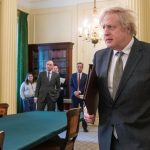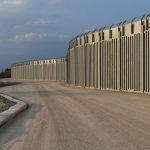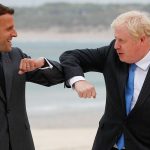Pakistan’s prime minister Imran Khan has been ousted after losing a vote of no confidence, ending a constitutional crisis as he had attempted to stay in power.
Opposition politicians put forward the motion last Sunday and Mr Khan responded by dissolving parliament and calling a snap election – a move the supreme court later ruled was illegal.
The vote was called over claims of economic and political mismanagement, with opponents blaming him for failing to revive the economy and tackle corruption.
Mr Khan, an Oxford graduate and former cricket star, surged to power in 2018 but recently lost his parliamentary majority and a prominent newspaper recently described him “as good as gone”.
He has accused his opponents of colluding with the US to remove him but has provided no evidence, and has urged people to take to the streets this weekend in protest.
The lead-up to the vote was tumultuous in Pakistan’s parliament with members of Khan’s party attempting to prevent the vote from proceeding.
Opposing politicians accused him of treason by attempting to subvert the supreme court’s demand.
Pakistan’s PM Imran Khan tipped to lose no-confidence vote
Pakistan president dissolves parliament as PM Imran Khan ducks no-confidence move
Pakistan: Death threats and dirty tricks not enough to deter Imran Khan ahead of no-confidence vote
Khan had held meetings with senior military figures prompting fears he would attempt to declare martial law to retain power.
Pakistan’s chief justice in turn prepared the supreme court to find the government in contempt of court if it failed to allow the confidence vote to be heard before midnight.
Opposition parties were able to secure 174 votes in the 342-member house in support of the no-confidence motion. Few politicians from Khan’s ruling party were present for the process, according to Reuters.
The leader of the opposition, Shahbaz Sharif – brother to the jailed former prime minister Nawaz Sharif – is set to become interim prime minister.
The opposition said it will hold a general election, which is expected in October at the earliest.
The drama threatened fresh political instability in the nuclear-armed country of 220 million people.
On the streets of the capital Islamabad, there was a heavy police and paramilitary presence, with shipping containers used to block off roads.
No prime minister has finished a full five-year term since independence from Britain in 1947.
Pakistan’s military has directly ruled the country for nearly half of its 75-year history, overthrowing successive democratically elected governments.
For the remainder of that time it has indirectly manipulated elected governments from behind the scenes.






















